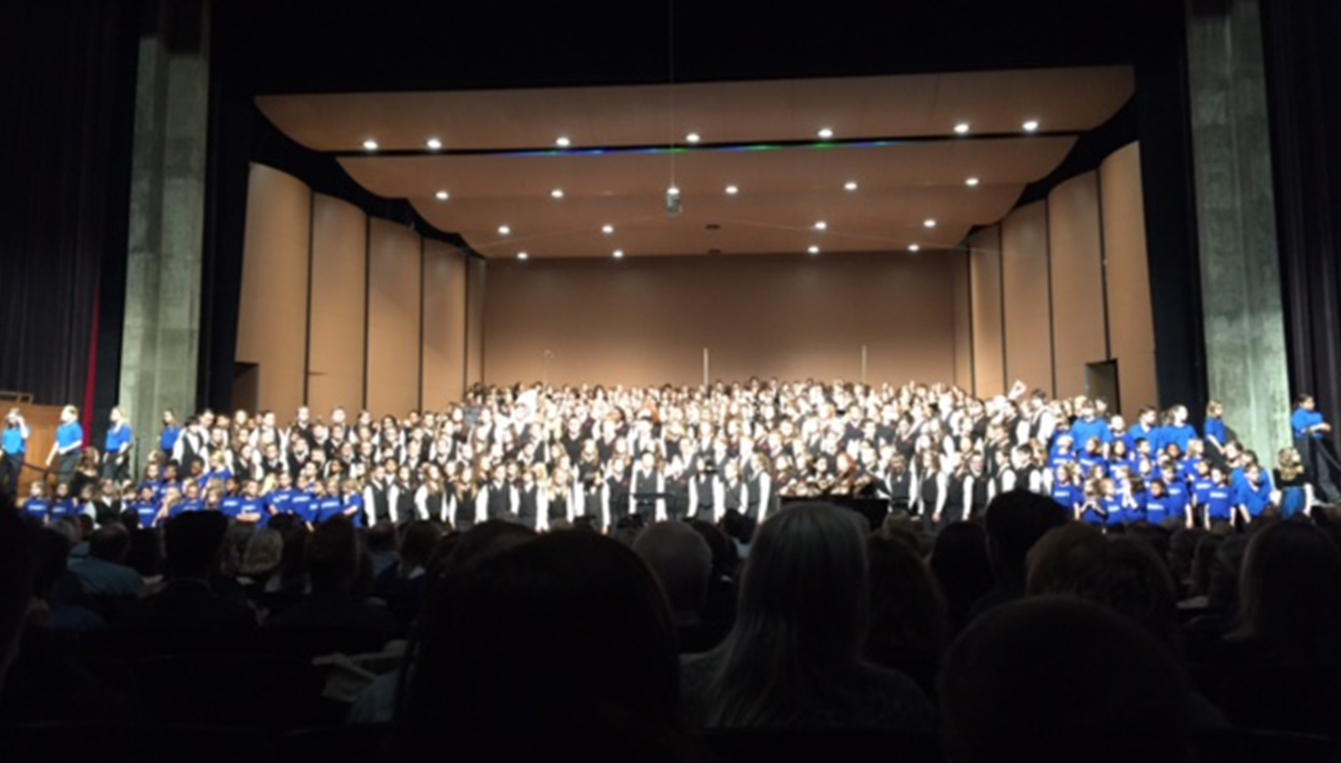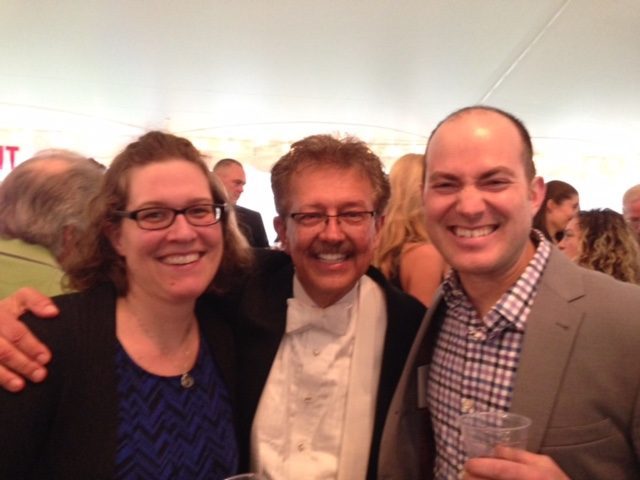Benjamin Markham
President

I travelled to Indianapolis, my hometown, last Saturday for a remarkable concert performance marking the 30th anniversary of the Indianapolis Children’s Choir and celebrating the contributions of Henry Leck, the choir’s founder and Artistic Director. Maestro Leck “passed the baton” to Joshua Pedde at the conclusion of the concert, who takes over as Artistic Director.
Mr. Leck is a rock star of the choral conducting world, and this concert was a fitting sendoff: no fewer than 18 world premieres – music for children’s choir written for the occasion by a veritable who’s who of contemporary choral composers. A particular highlight was Jubilate Deo, a seven-movement work for orchestra and mixed voices by Dan Forrest. This monumental work sets Psalm 100 in several major world languages: English, Hebrew, Arabic, Zulu, Spanish, Mandarin and Latin. The Indianapolis Children’s Choir is, in fact, a few dozen choirs with more than 3,000 members. Several hundred children – in individual and combined choirs – participated in this remarkable concert. Seeing and hearing a full orchestra and a few hundred kids singing their hearts out is truly something to behold.
The concert took place at Clowes Memorial Hall on the campus of the ICC’s longtime home, Butler University. Acentech’s predecessor, BBN, consulted on the design of the hall in the late 1950s with Evans Woollen & Associates, Architects, and it opened in 1963. (Russell Johnson described the room’s acoustics at a meeting of the Acoustical Society in 1964.) ICC performs at Clowes regularly and knows well how to fill that large space with sound. Clowes Hall feels big even for a 2,100-seat room. It has three balconies that extend along the sidewalls. Its finishes are mostly exposed concrete, and an array of plywood reflectors are suspended from a very high roof deck. There is much to appreciate about its acoustical character – low background sound, good clarity, and a warmly enveloping sound in many areas of the seating chamber. My main critique of its acoustics has to do with the room’s support for performers’ sound. Contemporary choral works for children benefit from a space that contributes a great deal of acoustical strength – what acousticians call G. Sound level data of a standard noise source called an ILG fan, published in Halls for Music Performance: Two Decades of Experience, 1962-1982, suggests that Clowes boasts less G than would be ideal for this music, although some areas in the hall are notably better in this respect than others – this data squares with my experiences in the room. It is difficult to find any multipurpose hall perfectly suited to this kind of performance, but with three decades of experience the ICC performs as well in Clowes as anyone.
The room – and the performers – are quite familiar to me: I sang with the Indianapolis Children’s Choir through most of my childhood, and performed in Clowes Hall with Henry Leck more times than I could count. I found the concert incredibly moving musically, and even more so emotionally – many of my fondest middle school memories are from making music with that wonderful ensemble at Clowes and on tour all over the world. (And even in those early days of the ICC, we performed a number of world premieres which have lived on in the choral repertoire to this day.) The ICC organization is in great shape, and an endowment is being established to fund its Artistic Director position in perpetuity. I am thrilled for the ICC and for the city of Indianapolis. I am eternally grateful for my time with the choir – it played a major role in shaping who I am, including the career that I have chosen. Congratulations, Mr. Leck, on your retirement – and thanks.

Acentech’s Ben Markham (far right) enjoying the festivities with Maestro Leck.